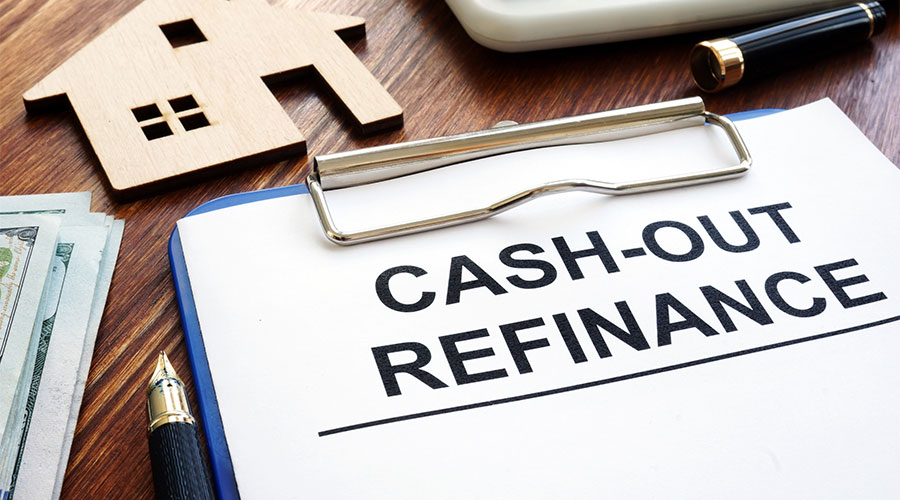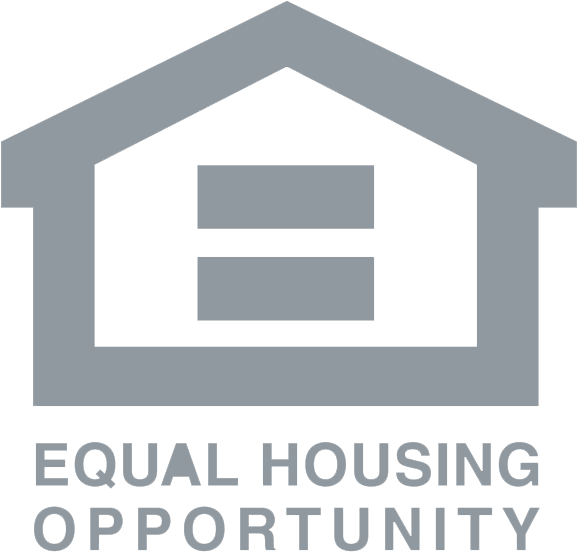
CASH-OUT REFINANCE
A Cash-Out Refinance is a type of mortgage refinancing option that allows homeowners to convert their home equity into cash by refinancing their existing mortgage for more than they currently owe. The difference between your new loan amount and your current mortgage balance is given to you in cash, which you can use for various purposes, such as home improvements, debt consolidation, education expenses, or other financial needs.
This type of refinance is particularly beneficial for homeowners who have built up significant equity in their homes and want to leverage that equity for cash while also potentially securing a lower interest rate on their mortgage.
- Access to Cash: A cash-out refinance provides you with immediate access to the equity in your home in the form of cash. This can be used for home renovations, paying off high-interest debts, funding major expenses, or even investing.
- Potentially Lower Interest Rate: If interest rates have dropped since you first obtained your mortgage, you could benefit from refinancing at a lower rate, reducing your monthly payments, or shortening your loan term.
- Debt Consolidation: A cash-out refinance allows you to consolidate high-interest debts, such as credit cards or personal loans, into one manageable mortgage payment with a potentially lower interest rate.
- Tax Advantages: In some cases, the interest on your mortgage may be tax-deductible, which could provide you with additional savings. However, it’s essential to consult with a tax professional to understand the implications for your specific situation.
When you opt for a cash-out refinance, you’re replacing your existing mortgage with a new loan that is larger than what you currently owe. The difference between the two amounts is paid out to you as cash. Here’s an example of how it works:
- Current Mortgage Balance: $150,000
- Home’s Current Value: $300,000
- New Loan Amount: $200,000
- Cash-Out Amount: $50,000 (the difference between your new loan and your current mortgage balance)
You now have a new mortgage of $200,000, and you receive $50,000 in cash, which you can use as you see fit.
To qualify for a cash-out refinance, you’ll need to meet certain eligibility requirements, including:
- Sufficient Equity: You’ll need to have enough equity in your home to borrow against. Most lenders require that you maintain at least 20% equity in your home after the refinance. This means that you may be able to borrow up to 80% of your home’s current value.
- Credit Score: A good credit score is essential for securing favorable terms on your cash-out refinance. While requirements may vary, most lenders look for a credit score of at least 620 for conventional cash-out refinances. FHA cash-out refinances may allow for lower credit scores.
- Debt-to-Income Ratio (DTI): Your debt-to-income ratio, which compares your monthly debt payments to your gross monthly income, will also be evaluated. Most lenders prefer a DTI ratio of 43% or lower, though exceptions may be made for borrowers with strong credit.
- Proof of Income: Lenders will require proof of stable income to ensure that you can afford the new mortgage payments. This typically involves providing recent pay stubs, tax returns, and other financial documentation.
- Appraisal: A home appraisal will be required to determine the current market value of your property. This value will be used to calculate how much equity you have and how much you can borrow.
While a cash-out refinance can provide you with valuable funds, there are costs to consider:
- Closing Costs: Like any refinance, you’ll be responsible for closing costs, which typically range from 2% to 5% of the loan amount. These can include origination fees, appraisal fees, title insurance, and other costs.
- New Mortgage Terms: Keep in mind that you’re replacing your current mortgage with a new one, which may have different terms, such as a longer repayment period or a different interest rate. Be sure to review these terms carefully to ensure they align with your financial goals.
- Private Mortgage Insurance (PMI): If your new loan amount exceeds 80% of your home’s value, you may be required to pay private mortgage insurance (PMI). This added cost can affect the affordability of your new loan.
Refinancing your mortgage through a cash-out refinance is similar to the process of obtaining your original mortgage. Here’s what you can expect:
- Consultation: Start by contacting a Top7 Mortgage specialist to discuss your goals and determine if a cash-out refinance is right for you. We’ll help you evaluate your home equity, current interest rates, and your financial needs.
- Application: Once you’ve decided to move forward, you’ll complete a loan application. This will involve providing financial documentation, such as income verification, credit history, and details about your current mortgage.
- Appraisal: We’ll order an appraisal to determine the current market value of your home. This is a crucial step, as it will help us determine how much equity you have and how much cash you can access.
- Loan Processing: After receiving your application and appraisal, we’ll process your loan. This includes verifying your financial information and ensuring that you meet all eligibility requirements.
- Loan Approval: Once your loan is approved, we’ll schedule your closing. At closing, you’ll sign the necessary paperwork, and the funds from your cash-out refinance will be disbursed.
- Closing: At closing, you’ll finalize your new mortgage, and the cash-out portion of your refinance will be provided to you. This is also when you’ll pay any closing costs, unless they’re rolled into your new loan.
However, it’s essential to weigh the costs and benefits of a cash-out refinance carefully. Extending your loan term or increasing your loan balance means you’ll be paying interest over a longer period, and you may incur additional costs such as PMI.
At Top7 Mortgage, our experienced team can help you evaluate your options and determine if a cash-out refinance is the right choice for your financial situation. We’ll work with you to find a solution that meets your needs and helps you achieve your financial goals.
Contact Us Today
If you’re ready to explore the possibilities of a cash-out refinance, contact Top7 Mortgage today. Our team is here to guide you through the process and help you access the equity in your home. Schedule a consultation and take the first step toward unlocking your home’s financial potential.
Joining Over 800,000 Students Enjoying Avada Education now
Become Part of Avada University to Further Your Career.

CASH-OUT REFINANCE
A Cash-Out Refinance is a type of mortgage refinancing option that allows homeowners to convert their home equity into cash by refinancing their existing mortgage for more than they currently owe. The difference between your new loan amount and your current mortgage balance is given to you in cash, which you can use for various purposes, such as home improvements, debt consolidation, education expenses, or other financial needs.
This type of refinance is particularly beneficial for homeowners who have built up significant equity in their homes and want to leverage that equity for cash while also potentially securing a lower interest rate on their mortgage.
- Access to Cash: A cash-out refinance provides you with immediate access to the equity in your home in the form of cash. This can be used for home renovations, paying off high-interest debts, funding major expenses, or even investing.
- Potentially Lower Interest Rate: If interest rates have dropped since you first obtained your mortgage, you could benefit from refinancing at a lower rate, reducing your monthly payments, or shortening your loan term.
- Debt Consolidation: A cash-out refinance allows you to consolidate high-interest debts, such as credit cards or personal loans, into one manageable mortgage payment with a potentially lower interest rate.
- Tax Advantages: In some cases, the interest on your mortgage may be tax-deductible, which could provide you with additional savings. However, it’s essential to consult with a tax professional to understand the implications for your specific situation.
When you opt for a cash-out refinance, you’re replacing your existing mortgage with a new loan that is larger than what you currently owe. The difference between the two amounts is paid out to you as cash. Here’s an example of how it works:
- Current Mortgage Balance: $150,000
- Home’s Current Value: $300,000
- New Loan Amount: $200,000
- Cash-Out Amount: $50,000 (the difference between your new loan and your current mortgage balance)
You now have a new mortgage of $200,000, and you receive $50,000 in cash, which you can use as you see fit.
To qualify for a cash-out refinance, you’ll need to meet certain eligibility requirements, including:
- Sufficient Equity: You’ll need to have enough equity in your home to borrow against. Most lenders require that you maintain at least 20% equity in your home after the refinance. This means that you may be able to borrow up to 80% of your home’s current value.
- Credit Score: A good credit score is essential for securing favorable terms on your cash-out refinance. While requirements may vary, most lenders look for a credit score of at least 620 for conventional cash-out refinances. FHA cash-out refinances may allow for lower credit scores.
- Debt-to-Income Ratio (DTI): Your debt-to-income ratio, which compares your monthly debt payments to your gross monthly income, will also be evaluated. Most lenders prefer a DTI ratio of 43% or lower, though exceptions may be made for borrowers with strong credit.
- Proof of Income: Lenders will require proof of stable income to ensure that you can afford the new mortgage payments. This typically involves providing recent pay stubs, tax returns, and other financial documentation.
- Appraisal: A home appraisal will be required to determine the current market value of your property. This value will be used to calculate how much equity you have and how much you can borrow.
While a cash-out refinance can provide you with valuable funds, there are costs to consider:
- Closing Costs: Like any refinance, you’ll be responsible for closing costs, which typically range from 2% to 5% of the loan amount. These can include origination fees, appraisal fees, title insurance, and other costs.
- New Mortgage Terms: Keep in mind that you’re replacing your current mortgage with a new one, which may have different terms, such as a longer repayment period or a different interest rate. Be sure to review these terms carefully to ensure they align with your financial goals.
- Private Mortgage Insurance (PMI): If your new loan amount exceeds 80% of your home’s value, you may be required to pay private mortgage insurance (PMI). This added cost can affect the affordability of your new loan.
Refinancing your mortgage through a cash-out refinance is similar to the process of obtaining your original mortgage. Here’s what you can expect:
- Consultation: Start by contacting a Top7 Mortgage specialist to discuss your goals and determine if a cash-out refinance is right for you. We’ll help you evaluate your home equity, current interest rates, and your financial needs.
- Application: Once you’ve decided to move forward, you’ll complete a loan application. This will involve providing financial documentation, such as income verification, credit history, and details about your current mortgage.
- Appraisal: We’ll order an appraisal to determine the current market value of your home. This is a crucial step, as it will help us determine how much equity you have and how much cash you can access.
- Loan Processing: After receiving your application and appraisal, we’ll process your loan. This includes verifying your financial information and ensuring that you meet all eligibility requirements.
- Loan Approval: Once your loan is approved, we’ll schedule your closing. At closing, you’ll sign the necessary paperwork, and the funds from your cash-out refinance will be disbursed.
- Closing: At closing, you’ll finalize your new mortgage, and the cash-out portion of your refinance will be provided to you. This is also when you’ll pay any closing costs, unless they’re rolled into your new loan.
However, it’s essential to weigh the costs and benefits of a cash-out refinance carefully. Extending your loan term or increasing your loan balance means you’ll be paying interest over a longer period, and you may incur additional costs such as PMI.
At Top7 Mortgage, our experienced team can help you evaluate your options and determine if a cash-out refinance is the right choice for your financial situation. We’ll work with you to find a solution that meets your needs and helps you achieve your financial goals.
Contact Us Today
If you’re ready to explore the possibilities of a cash-out refinance, contact Top7 Mortgage today. Our team is here to guide you through the process and help you access the equity in your home. Schedule a consultation and take the first step toward unlocking your home’s financial potential.
Joining Over 800,000 Students Enjoying Avada Education now
Become Part of Avada University to Further Your Career.
-
First-Time Homebuyer Guide to MortgagesMarch 15th, 2016
-
The Ultimate Guide to Home Mortgage RefinancingOctober 1st, 2024
-
The Loan ProcessOctober 18th, 2024
-
First-Time Homebuyer Guide to MortgagesMarch 15th, 2016
-
The Ultimate Guide to Home Mortgage RefinancingOctober 1st, 2024
-
The Loan ProcessOctober 18th, 2024
- No comments have been published yet.






